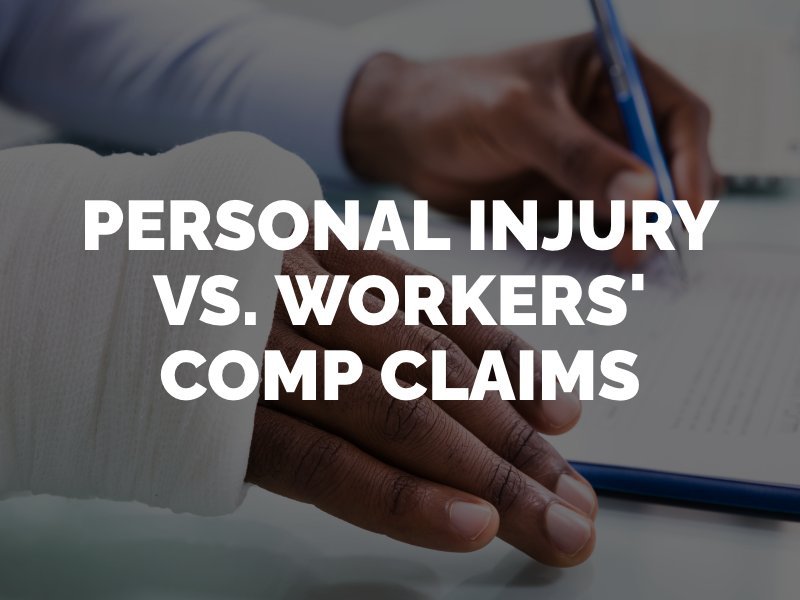Difference Between Workers’ Comp and Personal Injury Claim
If you get injured at work or while performing job-related tasks outside of work in California, you may be eligible for financial benefits. There are two main legal options for recovering financial compensation for a work-related injury or illness: workers’ compensation or a personal injury claim. Understanding the differences between these two legal systems can help you select the right one for you.

Burden of Proof in a Workers’ Comp Claim vs. Personal Injury Lawsuit
The main determining factor in whether you should file a workers’ compensation claim or a personal injury lawsuit is negligence. If your accident, injury or illness involved someone else’s negligence or recklessness, you should consider a personal injury lawsuit before accepting a workers’ comp settlement. The legal definition of negligence is the failure to take proper or reasonable care in doing something, resulting in harm or damage to someone else.
If one or more parties were negligent and this caused or contributed to your workplace injury, filing a personal injury lawsuit may be the better option. A lawsuit can give you a greater sense of justice and closure by holding the defendant accountable for negligence, as well as motivate safety changes in your workplace to prevent future such injuries. It could also result in greater financial compensation than a workers’ comp insurance claim.
Note, however, that it is your burden to prove negligence if you file a personal injury lawsuit in California. Proving negligence means establishing negligence as more likely to be true than not true based on a preponderance of the evidence (clear and convincing evidence). If you cannot prove that your employer, a coworker, a contractor, a product manufacturer or another party was negligent and that this caused your injury, you may not have grounds to file a personal injury lawsuit. You may, however, still be eligible for workers’ compensation benefits.
Benefits Available
You do not need to establish negligence to file a workers’ comp claim. This is a no-fault system that provides workers in California with financial relief and reimbursement, regardless of fault for the injury. The tradeoff, however, is that you may receive less in financial compensation through workers’ comp than you would with an injury lawsuit.
A successful personal injury lawsuit can result in financial compensation for your medical bills, 100 percent of your lost wages, disability expenses, property repairs, physical pain and emotional suffering, punitive damages, and more. A California workers’ comp claim, on the other hand, will only reimburse you for your medical expenses, two-thirds (or less) of your lost wages, disability expenses and death benefits. You may not have the right to file a lawsuit, however, if no one caused your accident or injury.
Can You Recover Through Both?
The workers’ compensation system works by allowing a victim to recover financial benefits without having to prove fault in exchange for the victim releasing the employer from liability. Once you accept a workers’ comp settlement, you can no longer file a personal injury lawsuit that names your employer as the defendant.
You may, however, be able to recover through both systems if a party other than your employer caused your accident. If a defective product caused your injury, for example, you may be able to file both a workers’ comp claim and a product liability lawsuit. Filing both types of claims can allow you to maximize your financial compensation, as multiple insurance companies will be financially responsible for your losses.
Which Type of Claim Is Right for You?
Before accepting a settlement of any kind, speak to a personal injury lawyer in Los Angeles for advice about your particular workplace accident claim. An attorney can carefully review the facts of your case to recommend the legal action that is right for you. Then, your attorney can represent you during insurance claim negotiations and/or an injury trial in pursuit of maximum financial recovery. Contact Rose, Klein & Marias LLP today for more information.
